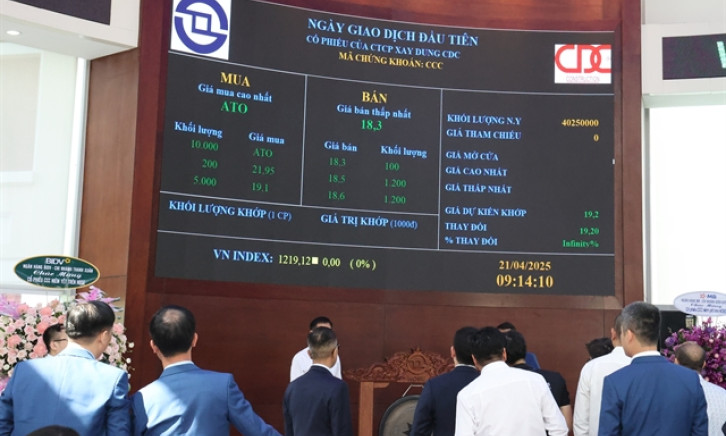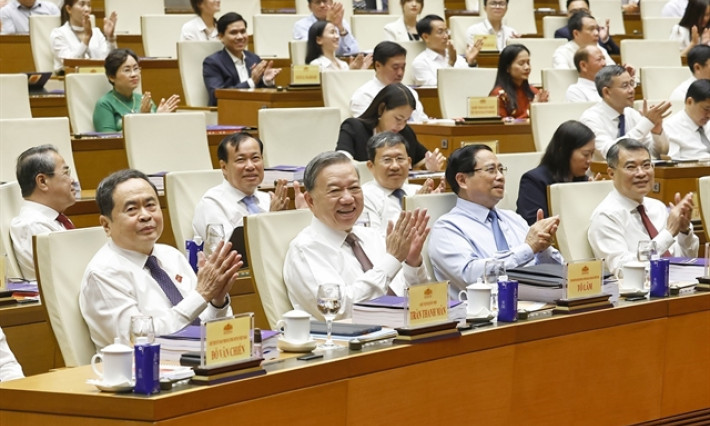Nationwide conference highlights rising drug concerns among younger population
A national online conference convened by the Ministry of Public Security on November 18 shed light on pressing drug-related issues in Việt Nam, revealing an alarming trend among younger drug users.
A nationwide online conference convened by the Ministry of Public Security on November 18 shed light on pressing drug-related issues in Việt Nam, revealing an alarming trend among young drug users.
The Ministry’s report highlighted that 44.6 per cent of users are aged 12 to 30 years, with synthetic drugs being the most commonly abused substances. Out of 228,215 individuals identified as addicts, illicit drug users, or those under post-rehabilitation management, only about a quarter are actively being monitored, underscoring significant gaps in oversight.
The conference reported that from 2022 to date, authorities have detected over 67,000 drug-related cases and apprehended more than 105,000 suspects. Seized contraband included nearly 1.6 tonnes of heroin, over 7.6 tonnes of synthetic drugs, and 1.7 tonnes of cannabis. While these efforts have curtailed Việt Nam’s potential role as a transit hub for international trafficking, domestic challenges persist.
Synthetic drug use, particularly among youth, poses severe risks.
Long-term abuse often leads to mental health disorders, erratic behaviour, and an escalation in crimes such as theft, assault and even murder. These repercussions threaten public safety, undermine the nation’s workforce and deter foreign investment.
Alarmingly, young individuals are increasingly accessing synthetic drugs through e-cigarettes, food and beverages disguised as innocuous items. Popular locations for drug use include rented apartments, hotels, and sensitive service establishments like bars and clubs.
At the conference, Lieutenant General Nguyễn Văn Viện, Director of C04, highlighted challenges in reducing drug demand. In 2023, authorities nationwide detected 35,293 individuals who tested positive for drugs during arrests. Of these, 6,235 were on managed lists, while 29,058 were not. This suggests that the number of known drug users may represent only one-quarter of the actual figure.
Lieutenant General Viện also noted that the capacity of rehabilitation centres does not meet actual needs. The country has 97 public rehabilitation centres accommodating only 60 per cent of the demand. Many facilities are deteriorating or serve multiple functions, such as caring for individuals with mental illnesses. Only half of these hubs meet current infrastructure standards. Additionally, there is a lack of policies to attract private investment in rehabilitation, with only 13 private centres operating nationwide, all on a small scale.
A significant portion of Việt Nam’s drug users are unemployed or have precarious jobs. This, coupled with limited community oversight, fosters a cycle of substance abuse that fuels criminal activities and disrupts public order. Currently, the nation faces 126 drug hotspots and four critical focal points of activity, alongside thousands of high-risk establishments and small-scale drug dealers. The Ministry also raised concerns about drug abuse among public figures, including artists and athletes.
The Ministry of Public Security’s crackdown efforts, underpinned by robust Party and State leadership, have led to notable progress. Over the past year, law enforcement neutralised 770 hotspots and 15 focal points of drug activity. They also prosecuted over 1,300 individuals and imposed administrative sanctions on many others. Additionally, authorities targeted establishments misusing their licences for drug-related activities, resulting in the prosecution of nearly 3,700 cases.
Despite these successes, the conference underscored significant shortcomings in the management and rehabilitation of drug users. Poor data collection and tracking of addicts and illicit drug users hinder efforts to fully combat the problem. The Ministry pledged to strengthen its approach through enhanced inter-agency collaboration and leveraging technology to monitor and manage the issue more effectively.
With synthetic drug use escalating and impacting younger demographics, the Ministry called for stricter prevention measures and enhanced public awareness campaigns. It also emphasised the critical role of families, schools and local governments in creating a drug-free environment. Ensuring a holistic and sustainable approach remains a priority as Việt Nam continues its fight against drug abuse, safeguarding its citizens, economy and international reputation.






